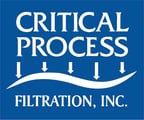If you’re using filtration to remove bacteria from your process, integrity testing will provide you with data to ensure product quality. Did you know you can perform integrity testing in-house without the huge expense of buying commercial equipment?
Benefits of Integrity Testing Bacteria Retention Filters
Integrity testing provides confirmation that the filter used for bacterial removal was not damaged in process, and performed as the manufacturer intended. For many processes, especially in the production of medicines, integrity testing is a regulatory requirement – and can often justify a significant capital expenditure for automated integrity test equipment. In other processes, integrity testing is not a regulatory requirement but is still used to protect product quality.
This article will discuss the option of “manual integrity testing” that you can perform using equipment you already have in your lab. Either way, as a seasoned filter manufacturer committed to quality and excellence, it is our recommendation that whether it be manual or automated, integrity testing is in your best interest and that of your customers.
Alternative to Integrity Testing
When not performing integrity tests, check that quantification of bacterial content in the filtered product is as required – or perhaps the bacterial specification is loose enough that a filter failure would not necessarily result in a failure to meet product specifications. Though understandable, most companies are operating in conformance with a quality management system that requires a drive towards continuous improvement, like better process efficiency. We think it's better to be proactive than reactive – especially when product quality is on the line.
Risks of Not Testing
Your requirements and risk analysis will clearly define the economic impact of not testing early in the process. When discovering unacceptable levels of bacteria in a batch, costs will be measured in time spent and time to redo, as well as the cost of materials used and those for replacement. The bottom line is, the cost of having to re-filter often far outweighs the cost of performing a pre-use integrity test.
Costs of an Automated Integrity Tester
For many processes, the cost of an automated integrity tester may not be justified by-product value or potential quality implications of a filter failure. For a new tester, prices usually start upwards of $25,000. For a used tester, prices are typically under $10,000. If that’s not a possibility for your operation, consider manual integrity testing.
Manual Integrity Testing
Critical Process Filtration has helped many customers with written instructions for performing “manual” integrity testing – either by pressure hold, bubble point, forward flow diffusion, or water intrusion methods. We have expert engineers on staff to help you select the right test for your process and the right equipment to perform only the tests you need.
The equipment required for manual integrity testing can be as simple as a pressure regulator and calibrated pressure gauge, which many companies already have onsite. Even if some investment is required, it will only be a fraction of the cost of an automated tester – and comes with the added benefit of not being tied to a specific filter vendor.
A manual integrity test setup is also easily reproducible and can be deployed quickly across multiple systems for less than the cost of a single automated tester.
Downloadable Instructions on Manual Integrity Testing In-House
- Wetting Out Instructions for Integrity Testing
- Water Intrusion Integrity Testing of Hydrophobic Membrane Filters
To learn more about integrity testing, visit our previous blog post:
In-Process Filter Integrity Testing. Why, When, and How
Critical Process Filtration offers a suite of technical services to support process filtration. Whatever your process requirements might be we’re here to help. To learn more about the services we offer click here.
